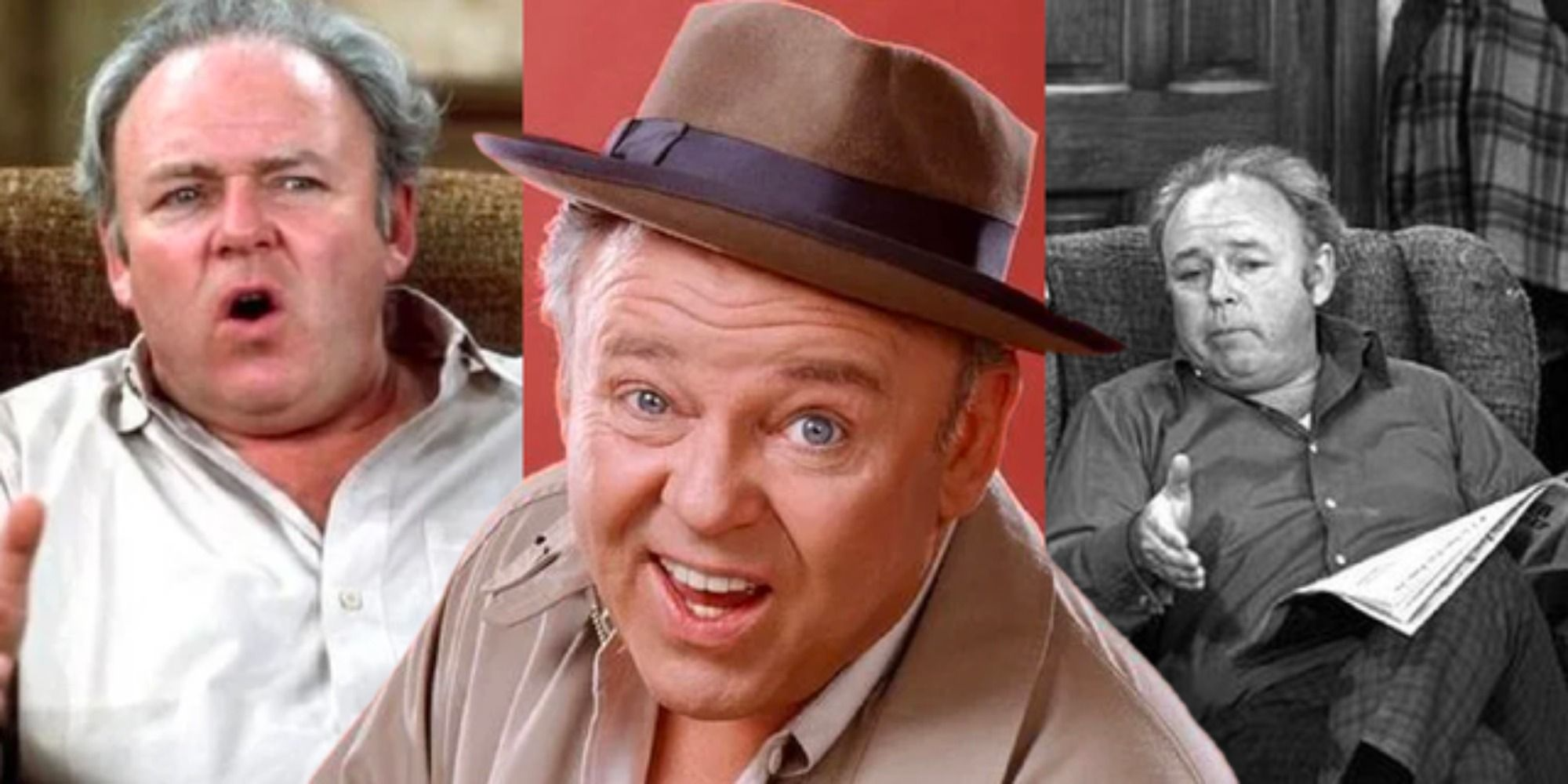
Introduction: When “All in the Family” premiered in 1971, it wasn’t just another sitcom. It was a sharp, unapologetic look at the social issues tearing apart America. At the heart of the show was Archie Bunker, an everyman whose outdated and bigoted views were both a source of humor and profound social commentary. How did Archie’s character become one of the most controversial figures in TV history? Let’s dive into how “All in the Family” challenged norms and broke barriers in its portrayal of race, gender, and class.
Archie Bunker: The Man Who Said What Others Were Thinking: Played by Carroll O’Connor, Archie Bunker was a working-class man who lived in Queens, New York. On the surface, he was the stereotypical blue-collar patriarch: gruff, stubborn, and often ignorant. But what made him stand out was his unapologetically racist, sexist, and homophobic views, which he voiced openly in every episode. Rather than pushing him to the sidelines as a villain, the show allowed Archie to be both a protagonist and a comedic figure, challenging the audience to laugh at his ignorance while questioning the cultural norms he represented.
The show’s genius was in making Archie a relatable, albeit deeply flawed, character. His prejudices weren’t simply caricatures; they reflected the real attitudes of many Americans at the time. In many ways, Archie became a mirror for society’s unspoken biases, and through his character, “All in the Family” became a platform for tackling issues like racism, women’s liberation, and LGBTQ+ rights.
The Social Issues That Sparked Debate: “All in the Family” wasn’t afraid to tackle controversial topics that many other TV shows avoided. It brought issues like interracial marriage, Vietnam War protests, and the women’s rights movement into the living rooms of viewers across America. One of the most memorable aspects of the show was the relationship between Archie and his son-in-law, Mike Stivic, played by Rob Reiner. Mike was the embodiment of the counterculture, a young, progressive man who challenged Archie’s outdated views at every turn.
Their constant clashes weren’t just comedic fodder—they symbolized the larger generational and ideological divide that was playing out in real-life America. By forcing viewers to confront these issues through humor, “All in the Family” became a cultural touchstone, sparking national conversations about race, class, and politics.
The Legacy of “All in the Family” in Modern Television: Even though the show ended in 1979, its influence continues to be felt today. “All in the Family” inspired a wave of TV shows that didn’t shy away from controversial subjects, including “Maude,” “The Jeffersons,” and “Good Times.” These shows carried on the tradition of tackling social issues head-on, but none quite matched the raw honesty and intensity of “All in the Family.”
The character of Archie Bunker was so iconic that even after the show ended, it continued to influence how TV depicted social issues. In fact, Archie became a sort of template for characters in later shows who embodied outdated views, like Al Bundy from Married with Children or Homer Simpson from The Simpsons.
Conclusion: “All in the Family” was revolutionary not only in its comedic approach but also in its fearless exploration of America’s deepest social divides. Archie Bunker may have been flawed and controversial, but he opened the door for a new era of television where no topic was off-limits. The show’s legacy as a pioneering force in social commentary endures, proving that even a character as offensive as Archie Bunker can have a lasting cultural impact.
